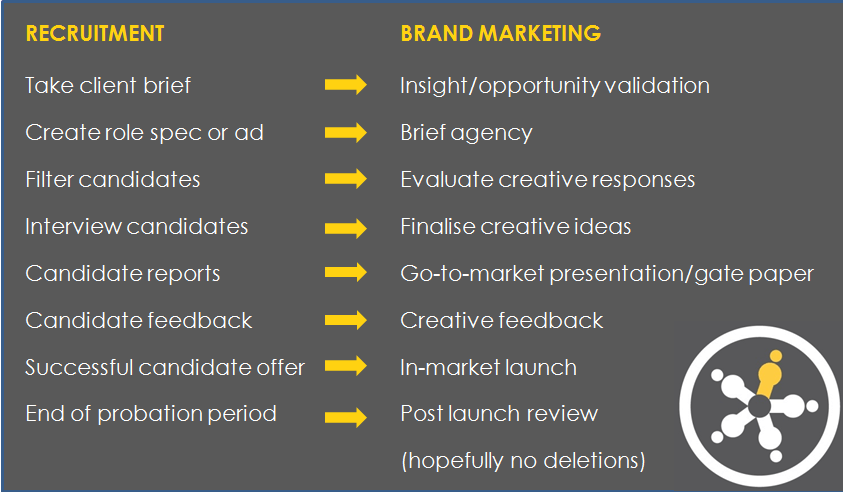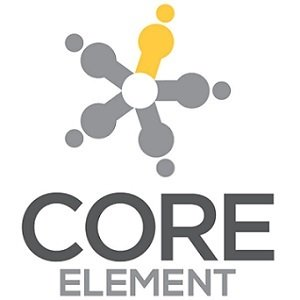OPPORTUNITIES
ALL ROLES ARE NOW NOTIFIED THROUGH LINKEDIN OR SEEK
UPDATES/ARTICLES

Published in issue 35 of Drinks Trade magazine
As owner of an executive recruitment agency, you can imagine I see a few CVs. Long before I made the transition from FMCG sales leadership in 2011 I was a grammar geek. In fact, having been fascinated with the English language since primary school, my obsession with words, sentences, structure and grammar has proven handy for pretty much my whole life.
There aren’t too many days I don’t meet with people to discuss their careers, something I’m both humbled by and take very seriously. Typically, the discussion involves a frame-up and walk through of the CV (by its owner) and always ends with a question from me: “can I offer you a perspective on your CV?” To be upfront, Core Element does not write CVs - our view is the CV is best written by the individual, in the first person. We are however happy to provide feedback and offer suggestions to further refine and enhance this all important document with your name at the top.
So is there a perfect CV? Probably not, if you subscribe to the theory of no person being perfect. In my view there are some non-negotiables (namely grammar), standards and logical layouts but, if you’re feeling trapped by the same template issued by the year 10 careers counsellor, it’s OK to move on and let a little of yourself shine through. Most of the CVs we see look consistently black and white, very conventional and pretty ‘stock’. Don’t get me wrong, this document doesn’t have to be flashy (at all): simple things like 12 point font, line spacings that give text air, clear, concise, specific language and (strictly) no motherhood statements is ‘flashy enough’ and will be well received by the reader, who won’t spend time ‘working’ at digesting a document. You’ll always get points for no typos and for being relevant and real with vocabulary – don’t use words and phases you wouldn’t normally use and people, please, don’t assume we have a copy of the A-Z of every company’s acronym dictionary.
Yes, CVs are the formal representation of you the professional in a few pages (3-5) but in this day and age of focus around ‘you the person’ being an equally important hiring criteria as ‘you the class leading customer director’, please feel permitted and encouraged to have your CV talk to your ‘EQ’ and not just a celebration of your IQ and accolades. Speaking of which, for achievements, think in milestone terms and limit to 4-5 per role. Many people fall into the trap of the CV having to get you the job and end up with long, verbose documents which typically read more like that book with ‘Peace’ in the title. Think of the CV as the spark, the foot in the door and remember It has one purpose, to get you on the right list and in for an interview. To help guide the richness in detail and subsequent length of your document, please be sure to save some magic for you when you go for your interview. Don’t feel the need to offer a complete ‘how I got there’ under your 4-5 big achievements. List the achievement against the SMART convention and make no mistake, a robust situational based competency interview assessment will call on you to demonstrate your process, thinking and actions: your competence.
Always open your CV with a frame-up of you: what you do, what you’re famous for and where you’re headed. Avoid the adjectives that most people go for (yes I’m picking on dynamic, accomplished, resilient and results focused), only because they’re just so ‘the norm’, almost out of a can. Get creative: “A trustworthy person and credentialed commercial leader who really enjoys (and thrives) building high performing sales teams in the on premise.” Tell it like it is and not like it is a vocabulary festival.
Bringing you to life in your CV doesn’t mean OTT design elements, rather let your pursuits, passions and reasons for being shine through and feature – they are usually just stuck at the bottom just before ‘referee details’. If you’re a proud dad with another bub on the way, great. If you coach local footy or are involved with a charity, include it. Remember, people hire people and they want to make connections - encourage them to make a connection with you before they even meet you.
In the end, if you meet the key criteria for a role (and company) and can present a contemporary, refreshing CV you’re well placed to getting on the interview list. It’s what happens from there that counts – over to you.

Having been in brand marketing my whole career, the transition to marketing recruitment is a healthy & rewarding challenge. While elements of the role have been a big change, there has been some comfort in relating the experiences of my candidates with my own and also to look at each role like I would a brand brief.
Here's how I see it.
So next time you are considering a new role, start thinking about what you as a brand stand for and that it “meets the client brief” (that’s where we can help). Ensure your key messages are being reinforced at every stage in the process and always bring it back to the brief!
Just hope the brief doesn’t change half way through (no one ever does that, do they?)
Emma W

By the time we become managers, we are usually well regarded in our area of functional expertise. Most of the time however we’re being asked to excel at something that might be very new – manage and lead people.
Here are just a few tips that Core Element has for new managers – just remember CORE and the fundamentals will help you through.
C – Culture built on credibility
Setting and living your team culture is important from the start. You want to establish what the company culture is but also that of your immediate team. You need to live this too, establishing a sense of credibility in what you say and do. This can be anything from any reports that need to be completed regularly to ways of communicating. You can’t expect people to know how you like things done if you don’t tell them. Build credibility with your people and watch your team culture take shape.
O – Open communications
Open communication applies to your people and your manager. If you ensure there are clear communications around objectives, goals and milestones you are sure to meet your boss’s expectations and have your team deliver on them too.
Open communications also refers to establishing your individual employee motivations. Not everybody is motivated by the same things. One may be motivated by money and the other by recognition, feedback or acceptance. Meet with each team member one-on-one and understand their motivators and preferences and be sure to communicate yours.
R – Respect your people and be respected
You have probably been promoted for doing your autonomous job really well and demonstrating your capacity to learn more and take on more. Problem is there’s not a universal book-of-rules for every new leadership situation so it pays to listen to your common sense. Everyone is different and everyone thrives when they feel they respected. You can go a long way to earning the respect of your team by simply respecting diversity. Treating others with empathy and displaying humility showcases your emotional intelligence (‘EQ’) and trust me, that’s what separates great from good.
E – Empower your people
It might seem hard at first but you need to empower your people. People will perform at their best when they are genuinely mandated and given scope. No-one likes to be managed by the microscope so don’t do it. Set clear deliverables and mutual check-in points and get into coaching mode. Remember you’re role now has broader scope and you’ll miss the mark if you’re fixated on the detail of your team’s individual tasks.
By no means does the CORE list have ALL the answers but hopefully it offers some proven and common sense tips to get you off on the right foot.
One last thing, if all else fails, think of the best manager you’ve had and understand why you got so much out of them. Take that philosophy, shape it and run with it.
Hope it helps.
Steve

